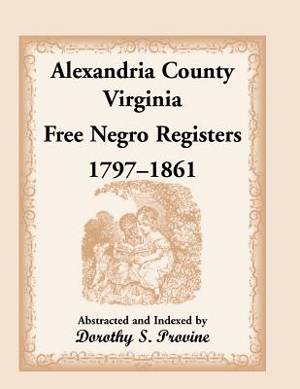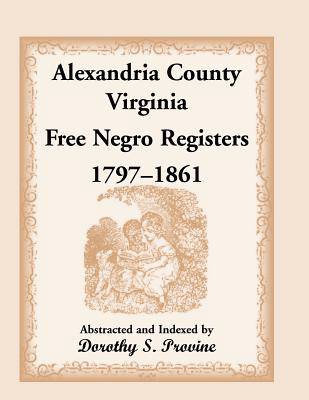
- Afhalen na 1 uur in een winkel met voorraad
- Gratis thuislevering in België vanaf € 30
- Ruim aanbod met 7 miljoen producten
- Afhalen na 1 uur in een winkel met voorraad
- Gratis thuislevering in België vanaf € 30
- Ruim aanbod met 7 miljoen producten
Zoeken
€ 37,95
+ 75 punten
Omschrijving
This volume contains abstracts of the registration records of free blacks in Alexandria County, Virginia. Alexandria County was created in 1801 when Virginia ceded part of Fairfax County to create the District of Columbia. It comprised that portion of the District of Columbia which lay on the west side of the Potomac River, and was known as Alexandria County, District of Columbia. Alexandria County remained a part of the District of Columbia until the territory was returned to Virginia in the retrocession of 1846. It then continued to exist as Alexandria County, Virginia, until 1920 when it was renamed Arlington County. The registration records abstracted here were originally created in response to a Virginia law of 1793 which required all free blacks to register with the town or county clerk, and get a freedom certificate to carry with them at all times as ready proof of their free status. In order to get a freedom certificate, the blacks had to produce acceptable evidence of their freedom. A black person could be free by virtue of being the child of a free mother, by manumission under a wide variety of conditions (such as at the owner's death per the terms of the owner's will), by self-purchase, etc. These abstracts indicate the nature of the proof provided, be it references to wills, deeds, and bills of sale, or affidavits by credible witnesses. Thus these abstracts name a great many people in addition to several thousand free blacks (many of the people named being white), and they provide a great deal of data on relationships, and some physical descriptions, all of which is of great interest to genealogists and social historians.
Specificaties
Betrokkenen
- Auteur(s):
- Uitgeverij:
Inhoud
- Aantal bladzijden:
- 360
- Taal:
- Engels
Eigenschappen
- Productcode (EAN):
- 9781556134166
- Verschijningsdatum:
- 1/03/2013
- Uitvoering:
- Paperback
- Formaat:
- Trade paperback (VS)
- Afmetingen:
- 216 mm x 279 mm
- Gewicht:
- 834 g

Alleen bij Standaard Boekhandel
+ 75 punten op je klantenkaart van Standaard Boekhandel
Beoordelingen
We publiceren alleen reviews die voldoen aan de voorwaarden voor reviews. Bekijk onze voorwaarden voor reviews.








